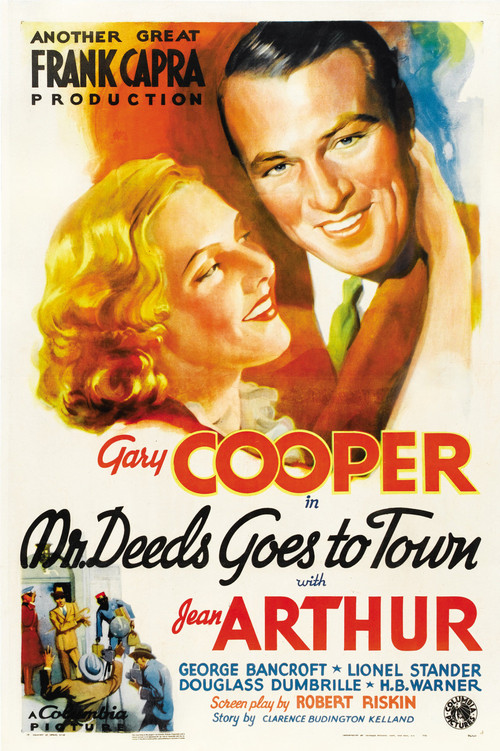
Once upon a time, in a little period of history called World War II, America was sorely in need of heroes, specifically heroes who personified the ideals by which America defined itself: courage, humility, toughness, and the chance to start small and end up big.
Gary Cooper was that hero. Perhaps his friend John Wayne fit that mold too, but in a larger, more mythical way. Coop was quieter, more deliberate and unassuming, but no less powerful. If they’d made a movie in the thirties about Charles Lindbergh, surely Gary Cooper would have played him.
Cooper grew up on a ranch in Montana and knew early on the meaning of hard work. He also knew a thing or two about horses, which came in handy when he first went to Hollywood and found work as a stuntman in Westerns.

But he didn’t stay a stuntman for long. This tall, lean, strikingly handsome man had that special "It" quality every producer and director looks for, and in no time he was in front of the camera. He would remain there, charming the country and making millions of housewives unsatisfied with their husbands, until his death from cancer in 1961.
To say that Coop was more of a movie star than a versatile actor understates his talent. Yes, his range was somewhat limited; but he certainly knew how to use what he had, most often playing down-home, modest, decent men of few words. And he made it all look natural and easy — even when it wasn’t.
Coop married a high society lady named Veronica Balfe in 1933 (known to all as “Rocky”), and unlike so many Hollywood unions, they stayed together, even though his prodigious sex drive had him bedding quite a few of his co-stars along the way. Rocky bore it all with grace, though when Coop fell in love with the much younger Patricia Neal, his co-star in “The Fountainhead” (1949), she’d finally had enough and threw him out.

They’d be separated three years before finally reuniting in 1954.
Reportedly, some of his wife’s tony friends and family dismissed Gary as dim and unsophisticated. It’s likely they weren’t just snobby, but jealous: of his looks, inner calm, self-made success, and famous friends (most notably, Ernest Hemingway). Or perhaps of his ability to eat a mountain of food in one sitting (a dozen eggs, a whole cherry pie) without adding a single pound to his lean 6’3” frame. Hell, we’d all be jealous of that.
No one who achieved the sustained success of Gary Cooper can be called stupid. Range and versatility aside, movie actors should be judged by the number of great films they make, and Cooper made plenty. In particular, three heroic roles remain indelible, all recognized by the Academy: World War One hero Alvin York in 1941’s “Sergeant York” (he won an Oscar), Lou Gehrig in 1942’s “The Pride Of The Yankees” (he was nominated), and Marshal Will Kane in 1952’s “High Noon” (his second win.)

Playing these parts alone would have ensured screen immortality, but these were three of many, including countless other Westerns (besides the immortal “High Noon”) where he felt most at home. In fact, Coop was credited in close to 100 films. And at the time of his death, he held the record for most years in the top ten list of box office favorites. Not bad for a shy, gangly kid from Montana.
Finally, he had that remarkable face…so distinctly American, and something to celebrate in and of itself.
More: 5 Pictures that Prove Gary Cooper Can Still Make You Swoon



